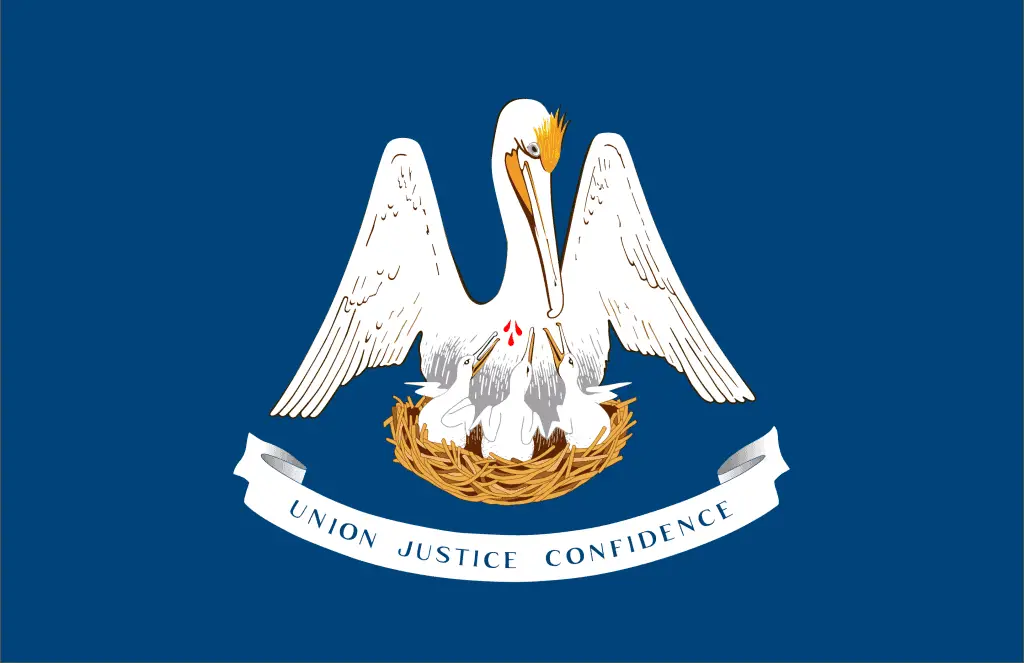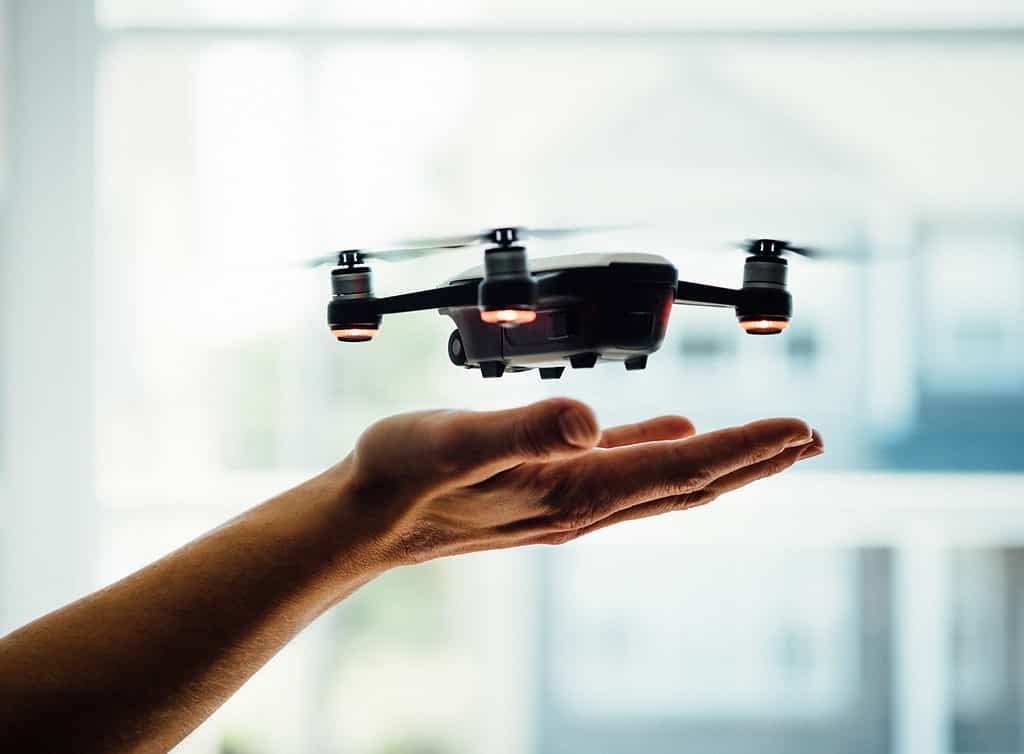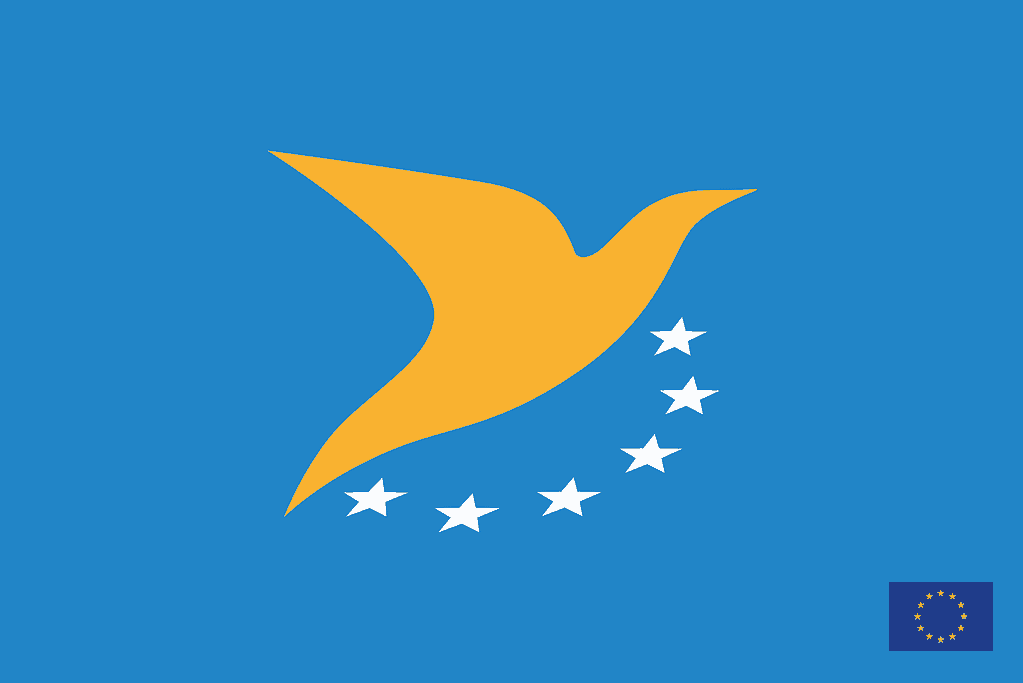Drone Laws in Louisiana
Hobbyist Drone Laws For Residents of Louisiana and USA
Drone Operations in Louisiana are regulated.
- Hobbyist drone flights are allowed
- Hobbyist drone pilot license may be required for certain operations.
- A TRUST Test is required.
- Hobbyist Drone registration is required for hobbyists flying a drone of more than 0.55 lbs.
- Drone Remote ID is required for hobbyists.
- Drone Insurance is not required but recommended for hobbyists’ drone operations
Read below for more details on Hobbyist Drone Laws in Louisiana and to find links to regulators and other credible sources!
Agencies Responsible for regulating drones in the State of Louisiana
Drone Regulator in the USA: Federal Aviation Administration (FAA)
Contact Information
If you need additional details we have not covered or specific case assistance, you can contact the FAA directly at:
- Address: 800 Independence Avenue, SW, Washington, DC 20591
- Phone: 844-FLY-MY-UA (+1 844-359-6982) (Some users have indicated that this number tells you to use the email below and hangs up)
- Email: UAShelp@faa.gov
Please continue reading for more details on USA Drone Laws.
UAS Laws – General rules for flying drones in Louisiana
Drone operation in the State of Louisiana is broadly governed by The Federal USA agency responsible for drone safety, the FAA. Click here for details on FAA USA Drone Laws.
In addition, the Louisiana State legislature has enacted several supplemental rules specific to Louisiana drone operations. The highlights are enumerated below.
Are drones allowed in Louisiana?
Drones are allowed in Louisiana for recreational and commercial use, subject to FAA regulations and flight controls established by local governments. Read on for details.
Specific additional drone use laws by the Louisiana legislature
Louisiana statute defines UAS as any unmanned aircraft and associated support equipment, i.e., control stations, navigation equipment, data links, communications, and telemetry needed to operate the model. UAS includes drones, remote-controlled aircraft, and other craft flown remotely or autonomously from the ground.
This law affirms that Louisiana State has exclusive jurisdiction over all UAS operation regulations, thus pre-empting local ordinances, codes, rules, and regulations.
This law prohibits intentionally flying drones across police cordons to obstruct the investigating officer(s). It also permits law enforcement or emergency responders to disable any UAV in the local area that has the potential to endanger lives.
This law makes it illegal to fly any UAV type to conduct unlawful surveillance or collect information from correctional facilities, schools, or school premises. Drone pilots who violate this law face a maximum fine of $2000 or a prison sentence not exceeding six months.
HB 335 law approves state drone registration and licensing fees, not exceeding $100 for agricultural purposes, education, and safety training.
This bill amendment adds the unlawful use of UAS to the state’s voyeurism and video voyeurism crimes. Video voyeurism includes capturing images and recording audio to view, observe, photograph, or film persons without consent for lewd purposes.
This bill amendment expands on previous state laws. It includes the unlawful use of drones in surveillance crimes that constitute criminal trespass.
SB 183 permits using drones and other UAVs for certain agricultural, commercial operations with regulations. Examples of commercial operations include land for agricultural production and or processing of crops, livestock, farm-raised fish, etc.
HB 1029 states that UAV operators must apply for written consent from facility owners for capturing images or surveillance purposes. Surveillance without consent carries a maximum fine of $500 and 6 months in prison for first offenders and double penalties for second offenses.
Specific additional UAV laws by local governments within Louisiana
Counties or towns within Louisiana may have specific restrictions within their jurisdictions. We recommend checking the local jurisdiction for the latest regulations.
UAS operation rules in Parks, Recreation, and Cultural Preserves
Audubon Nature Institute Parks | Park Rules
This rule prohibits all drone usage in parks owned by the Audubon Nature Institute.
City Park New Orleans | Park Rules
Drone and aerial craft operation is not allowed without a permit and is limited to permitted media outlets and City Park employee use for the benefit of City Park
No other drone laws regarding parks within Louisiana were found at the time of our search. We recommend checking the local jurisdiction for the latest regulations.
Specific additional UAV laws in Jurisdictions within Louisiana
Counties or towns within Louisiana may have specific restrictions within their jurisdictions. We recommend checking the local jurisdiction for the latest regulations.
What you must know about Louisiana No Fly Zones or No Drone Zones
You need to know if you can operate your drone. Under what limitations? Will you need flight authorizations? And, if so, how do you get those authorizations?
We encourage you to read our explainer. It provides more details here: Explainer – What You Must Know About No Fly Zones or No Drone Zones
How do I check for no-fly zones, no-drone zones, and uncontrolled or controlled airspace in Louisiana?
The FAA has partnered with several partners to develop B4UFLY mobile apps. Theses app can tell you if there are any airspace restrictions where you want to fly.
If you are looking for a drone no-fly zone map, then B4UFLY is a good place to start.
The app provides situational awareness to recreational flyers and other drone users. You will need airspace authorizations to fly in controlled airspace. This app does not allow you to get airspace authorizations. Authorizations are available through the FAA’s Low Altitude Authorization and Notification Capability (LAANC).
The B4UFLY app is available to download for free:
B4UFLY Desktop and Mobile Applications
| Approved Service Provider (click on name to go to website) | App on iOS | App on Android | Desktop |
| Airspace Link | Yes | Yes | Yes |
| AutoPylot | Yes | Yes | |
| Avision | Yes | Yes | Yes |
| UASidekick | Yes | Yes | Yes |
How do I get authorization to fly in controlled airspace in Louisiana?
The FAA runs Low Altitude Authorization and Notification Capability (LAANC). It is the only way to get permission to fly in controlled airspace.
LAANC is available to drone pilots. It applies if you are operating under the Small UAS Rule Part 107. And it applies if you are operating under the exception for Recreational Flyers.
You can get access through one of the FAA-approved LAANC UAS Service Suppliers. Some providers have apps that can be used to apply for approval in near-real time.
The companies above (with B4UFLY capabilities) are also FAA-approved UAS Service Suppliers of the Low Altitude Authorization and Notification Capability.
There are two ways to use LAANC:
- Submit a near real-time authorization request for operations. Applies to flights under 400 feet in controlled airspace around airports. This is available to Part 107 Pilots and Recreational Flyers.
- Submit a “further coordination request.” This applies if you need to fly above the designated altitude ceiling in a UAS Facility Map, up to 400 feet.
- You can apply up to 90 days before a flight. The approval is coordinated manually through the FAA. This is available to Part 107 pilots only.
LAANC is available at 726 airports. Use the manual process to apply for authorizations for airports not offering LAANC.
Drone Laws Private Property
Can you fly a drone over private property? Yes, you can fly your drone over private property, unless the property is restricted (in a no fly zone or through local regulations).
All drone operations should be conducted within privacy rules and safely. Several states and local jurisdictions (e.g. Florida) have rules that prohibit using a drone to capture an image of privately owned property, tenant or occupant without consent. Check local privacy rules.
You are not allowed to take off from or land your drone on private property without the owners permission.
Property owners concerned about intrusive drone activity may not interfere with such drones. You should document any activity preferably with video capture and contact your local law enforcement.
Notes for recreational drone pilots flying for fun in Louisiana
If you have a small drone of less than 55 pounds, you can fly recreationally by following Drone Laws in the USA defined by 49 USC 44809.
In Louisiana, recreational UAS operations (i.e., flying for recreational purposes) are approved under law, specifically 49 USC 44809. Please check the specific state jurisdiction for additional permissions, licensing, or clearance requirements.
Following these rules will keep you and your drone safe. And that helps keep the airspace available to everyone.
All recreational flyers must pass an aeronautical knowledge and safety test. The Recreational UAS Safety Test (TRUST) meets this rule. If law enforcement or FAA personnel ask, you must provide proof of passage.
TRUST provides education and testing on important safety and regulatory information. If you fly your drone recreationally under the Exception for Recreational Flyers, you must pass the test before you fly.
Note: If your drone weighs more than .55 pounds (lbs), you must register your drone through the FAA’s Drone Zone.
For a complete discussion on drone registration, see our Drone Registration Explainer.
To fly your drone as a recreational flyer, it’s as easy as 1-2-3
- Understand recreational flying requirements.
- Note: Non-recreational drone use is when you fly drones for business or to help out, not just for fun. For example, real estate agents may use drones to photograph houses they sell. Roof inspectors might use drones to get a closer look at roofs. A high school might have someone fly a drone to record football games and post videos on their website. Doing volunteer work with drones also counts as non-recreational use. So, non-recreational drone use is any time you operate a drone for useful work. Or help others out. It is when you are not just doing it to enjoy flying it for hobby or sport. If you’re unsure which rules apply to your flight, fly under Part 107 (See below).
- Visit the Recreational Flyers page to learn about the rules for recreational flyers.
- Download the FAA’s B4UFLY mobile app for more recreational drone flying resources.
- Take TRUST
- You may take the free online test through any FAA-approved test administrators.
- All FAA-approved TRUST test administrators offer the test free.
- All test questions are correctable to 100% before issuing your completion certificate.
- After completing TRUST, you must download, save, or print your completion certificate.
- If you lose your certificate, you will need to retake TRUST.
- View a list of TRUST Test Administrators
- Receive your certificate
- After you pass the test, you will receive a certificate. The test administrator you selected gives you your certificate.
- Test administrators will not keep a record of your certificate. If law enforcement officers ask, you must present a copy of your certificate.
General Rules for Recreational Flyers
USC44809 is the Exception for Limited Recreational Operations of Unmanned Aircraft. The law describes how, when, and where you can fly drones for recreational purposes. Following these rules helps keep people, your drone, and our airspace safe:
- Fly only for recreational purposes (personal enjoyment).
- Follow the safety guidelines of an FAA-recognized Community-Based Organization (CBO). Read Advisory Circular 91-57C. It provides more information on how to become an FAA-recognized CBO,
- Keep your drone within the visual line of sight. Or use a visual observer who is physically next to you and directly communicating with you.
- Give way to and do not interfere with other aircraft.
- Fly at or below FAA-authorized altitudes in controlled airspace with prior FAA authorization. Controlled airspace is Class B, C, D, and surface Class E designated for an airport. Get your FAA authorization using LAANC or DroneZone.
- Fly at or below 400 feet in Class G (uncontrolled) airspace. Note: Flying drones in restricted airspace is not allowed. Before the flight, drone pilots should always check for airspace restrictions. You can do so on the B4UFLY app or the UAS Facility Maps webpage.
- Take The Recreational UAS Safety Test (TRUST) and carry proof of test passage when flying.
- Have a current FAA registration. Mark (PDF) your drones on the outside with the registration number. And carry proof of registration when flying. Starting September 16, 2023, registered drones must broadcast Remote ID information. The FAA temporarily delayed enforcement to March 16, 2024. That law is now in place and being enforced.
- Do not operate your drone in a manner that endangers the safety of the national airspace system.
Recreational drone pilots must not violate safety requirements. Nor should they operate their drone flight carelessly or recklessly. You could be liable for criminal and/or civil penalties if you do.
You do not need a drone license if your drone use is recreational and falls within the scope of 44809. But, to fly your drone commercially, you must first get a Remote Pilot Certificate (RPC). This is also true for flights under the FAA’s Small UAS Rule (Part 107). The RPC is also known as a drone license or a Part 107 certificate. You may want to get your drone license for the flexibility it allows in your drone flights.
For more details on drone licensing, please see our Drone License Explainer.
Commercial Drone Laws For Residents of Louisiana and USA
Drone Operations in Louisiana are regulated.
- Commercial drone flights are allowed
- A commercial drone pilot license is required
- Commercial Drone registration is required in Louisiana
- Drone Remote ID is required for Commercial Drone Operators.
- Drone Insurance is not required but recommended for commercial drone operations
Read below for more details on Commercial Drone Laws in Louisiana and to find links to regulators and other credible sources!
Notes for operating Commercial Drone Services in Louisiana
If you have a small unmanned aircraft that is less than 55 pounds, you can fly for work or business by following the Drone Laws in the USA defined by FAA Part 107 guidelines.
Commercial drone operations in Louisiana are approved under the FAA Part 107. Please check the specific state jurisdiction for additional permissions, licensing, or clearance requirements.
For a complete review of the FAA Part 107 regulation, please see our comprehensive FAA 107 Explainer.
Note: The Operations Over People rule became effective on April 21, 2021. Drone pilots operating under Part 107 may fly at night, over people and moving vehicles without a waiver as long as they meet the requirements defined in the rule. Airspace authorizations are still required for night operations in controlled airspace under 400 feet.
If you have a small drone of fewer than 55 pounds, you can fly for work or business by following the Part 107 guidelines. There are three main steps to fly under Part 107 rules.
Step 1: Learn the Rules
Ensure you understand what is and is not allowed under Part 107 rules.
If you are unsure if Part 107 rules work for you and your intended operation, check our user identification tool.
Some operations will need a waiver. Here are the regulations specified in §107.205 that are subject to waiver:
- Operation from a moving vehicle or aircraft – §107.25
- Operation at Night – §107.29(a)(2) and (b)
- Visual line of sight aircraft operation – §107.31
- Visual observer – §107.33
- Operation of multiple small unmanned aircraft systems – §107.35
- Yielding the right of way – §107.37(a)
- Operation over human beings – §107.39
- Operation in certain airspace – §107.41
- Operating limitations for small unmanned aircraft – §107.51
- Operations Over Moving Vehicles – §107.145
Learn more about Part 107 Waivers.
Drone operators should avoid flying near airports. It is difficult for crewed aircraft to see and avoid a drone while flying. Remember that the drone operator must avoid manned aircraft. You are responsible for any safety hazard your drone creates in an airport environment.
Step 2: Become an FAA-Certified Drone Pilot by Passing the Knowledge Test
For more details on drone licensing, please see our Drone License Explainer.
To be eligible to get your Remote Pilot Certificate, you must be:
- At least 16 years old
- Able to read, write, speak, and understand English
- Be in a physical and mental condition to safely fly a UAS
Study for the Knowledge Test
- Review Knowledge Test Suggested Study Materials provided by the FAA.
Get an FAA Tracking Number (FTN)
- Create an Integrated Airman Certification and Rating Application (IACRA) profile. Then, register for the knowledge test.
Schedule an Appointment
- Take the Knowledge Test at an FAA-approved Knowledge Testing Center.
Complete FAA Form 8710-13
- Once you’ve passed your test for a remote pilot certificate (FAA Airman Certificate and/or Rating Application), log in to the FAA Integrated Airman Certificate and/or Rating Application System (IACRA)* to complete FAA form 8710-13.
- Review the entire process to get your Remote Pilot Certificate.
Step 3: Register your Drone with the FAA
For a complete discussion on drone registration, see our Drone Registration Explainer.
Registration costs $5 and is valid for three years. You’ll need a credit or debit card and the make and model of your drone handy to register. Learn more about registering your drone.
- Create an account and register your drone at FAADroneZone. Select “Fly sUAS under Part 107.”
- Once you’ve registered, mark your drone (PDF) with your registration number. The number will be helpful in case it gets lost or stolen.
Commercial rules in Parks, Recreation and Cultural reserves
We suggest you contact the local parks agencies and check for specific permissions required.
Drone Laws For Foreign Visitors To Louisiana (not USA Residents)
Drone Operations in Louisiana are regulated.
- Foreign visitor drone flights are allowed in Louisiana
- Foreign visitor drone pilot license is required
- Drone registration is required for visitors/tourists
- Drone Remote ID is required in Louisiana for tourists..
- Drone Insurance is not required but recommended for tourist drone operations
Read below for more details on Drone Laws in Louisiana for Visitors (Tourists) and to find links to regulators and other credible sources!
Drone Laws For Government Drone Operators
Drone Operations in Louisiana are regulated.
- Government drone flights are allowed in Louisiana
- Government drone pilot license is required
- Drone registration is required for Government operations
- Drone Remote ID is required in Louisiana for Government operations..
- Drone Insurance is not required for Government drone operations
Read below for more details on Drone Laws Louisiana for Government Drone Operations and to find links to regulators and other credible sources!
Useful published information on flying drones in Louisiana
We have partnered with the FAA and other drone enthusiasts in supporting an internet educational campaign called Know Before You Fly. The tips, pointers, and resources apply to Louisiana Drone Users also. Please visit the site for additional information: Know Before You Fly
Authoritative Sources of Information on Louisiana Drone Laws
We will attempt to keep an updated list of online authoritative links to regulators and other official websites here:
- Drone Regulator Website: FAA Drone Website: https://www.faa.gov/uas/
- Link To SUAS Laws: 49 USC 44809 or 14 CFR Part 107 Small Unmanned Aircraft Systems
- State-Specific Laws: See sections above.
- No Fly Zone Maps/Locations: See No Fly Zone Section above – B4UFLY – https://b4ufly.aloft.ai/
- UAV Registration Site: FAADroneZone
- Drone Operator Licensing Site: TRUST or FAA in person (see sections above)
- The Recreational UAS Safety Test: The Recreational UAS Safety Test (TRUST)
- Others: Association for Unmanned Vehicle Systems International – Mostly for commercial drone service providers and users.
- Others: Academy of Model Aeronautics – Mostly for hobbyists
- Others: US Forest Service Recreational Drone Tips
NOTE: This page is about the Regulation of Unmanned Aerial Vehicles: Small Unmanned Aerial Systems (SUAS), Small UAS, Remote Piloted Aerial Systems (RPAS), unmanned aerial vehicle (UAV), Unmanned Aerial System (UAS), and drone are interchangeable terms unless specified. Model Aircraft, toy, remote-controlled, and RC aircraft may be covered by the same regulations unless specified.
Find out why
We think you must use a Drone Preflight Checklist
And a Drone Post-flight checklist
Free Drone Flight Checklist PDF
This Drone Flight Checklist is better than others.
It’s free!
It includes both the preflight checklist and post-flight checklist
It’s an easy-to-use printable PDF that covers all your bases.
Traveling with a Drone?
Click here to read our Comprehensive Guide For Traveling With A Drone.
LET US CONNECT YOU
Calling All Drone Service Companies, Trainers, Tour Guides with Drone Experience
Contact Us with your website, email address and phone number using our Contact Page
We want to share your information with visitors who look for credible providers that follow the rules.
NOW IT’S YOUR TURN





Leave a Comment